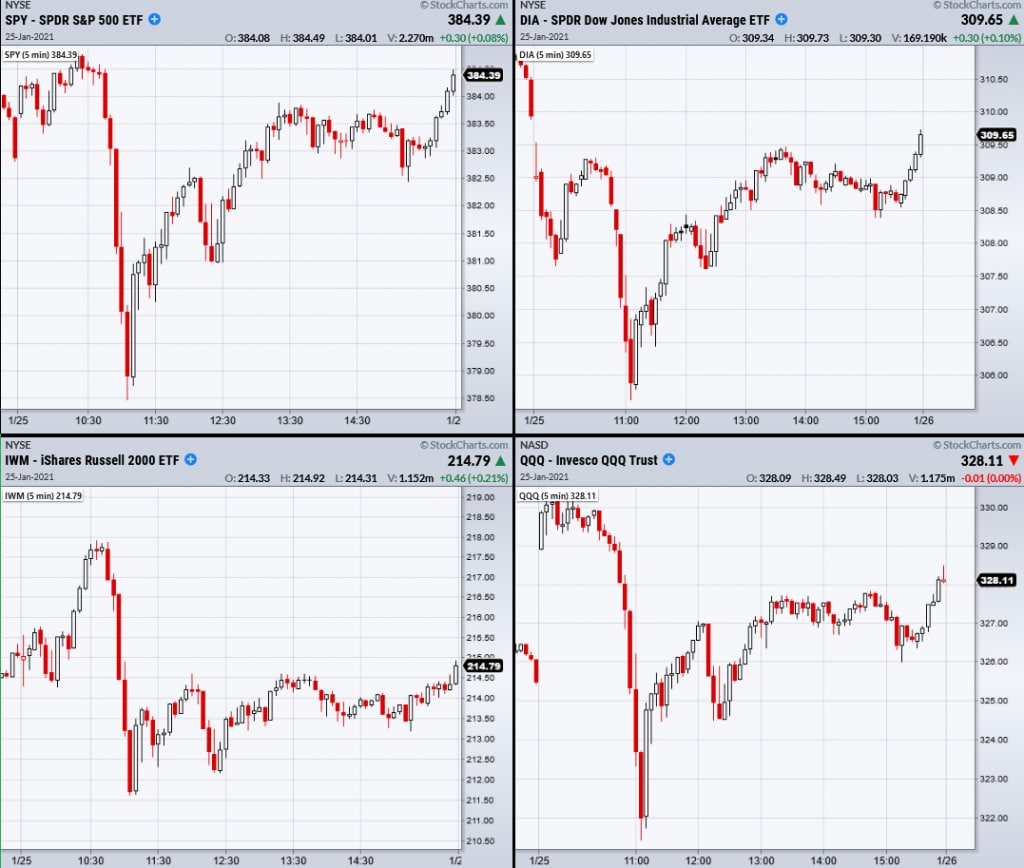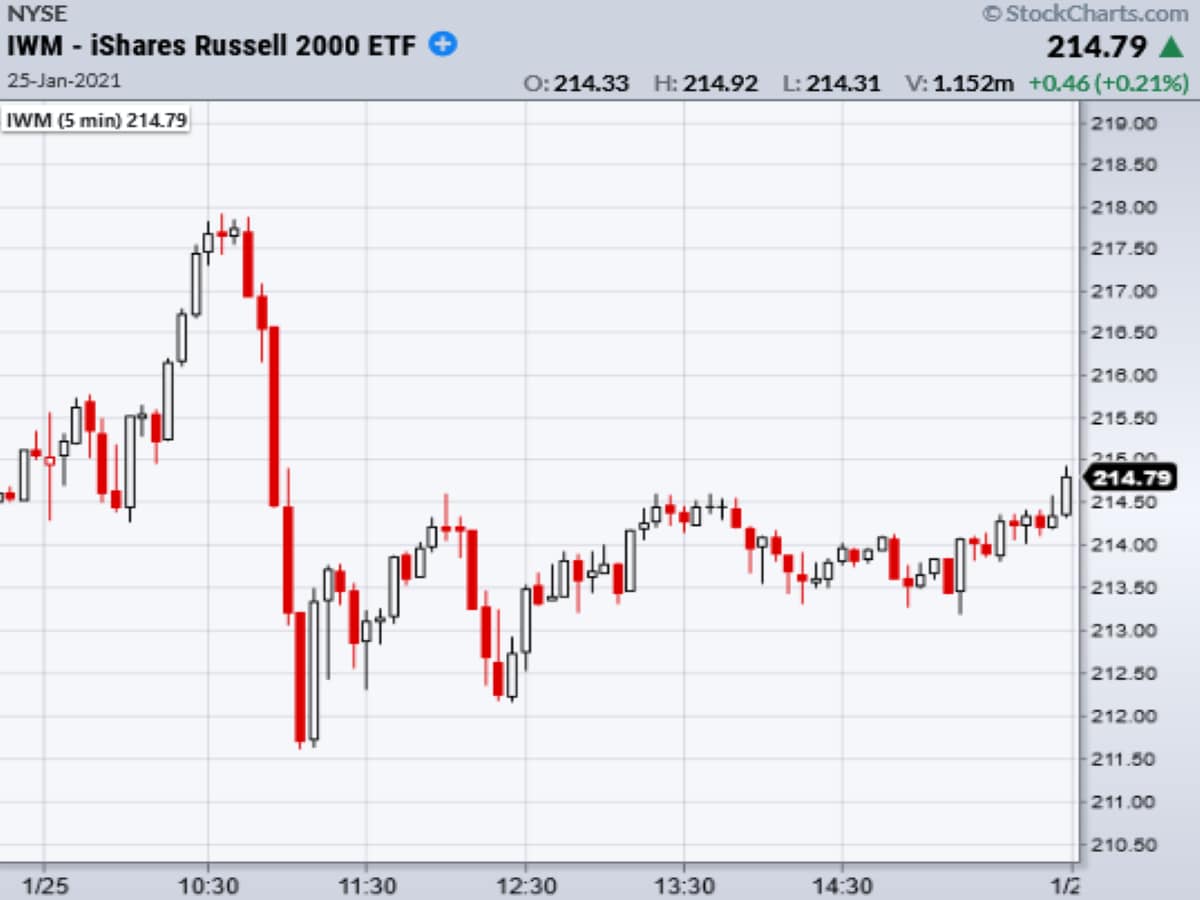Mish Schneider applies her market expertise to yesterday’s volatile trading, explaining how investors suffering from the fear of missing out (FOMO) can deviate from their trading strategies and, ultimately, affect the market as a whole.
Monday was a roller coaster ride for traders with a steep, late-morning selloff, followed by a steady wave of buying until the closing bell.
Highly volatile days can be great for making quick trades but can also come with increased risk as we saw on Monday.
The fast-moving pace can easily bring forth a slew of emotions as people rush to get a piece of the market action.
One common emotion is fear.
And on Monday morning, the FOMO came as people rushed to buy big movers.
A perfect example was the Russell 2000 [IWM], which represents 2000 small cap companies.
As you can see in the 5-minute chart above, a frenzy of buying was followed by pure panic.
It’s easy to get wrapped up in FOMO when you see a multitude of stocks blasting off, but this is the most important time to acknowledge you are having that feeling.
Once you identify FOMO, the next step is to understand that you potentially have placed yourself in a risky spot both mentally and in the market.
The market has a special way of humbling even the best of traders and while having these feelings is normal for many traders, what is done next can make all the difference.
One quick tip that can easily save some pain and headaches is making sure you see where the money is rotating into. Lately, that rotation has become wilder and more volatile.

Above are the other major indices including the S&P 500 [SPY], Nasdaq 100 [QQQ], and the Dow Jones [DIA].
While IWM was breaking out to new highs, the others were lagging or simply put, trading sideways.
As a matter of fact, the QQQs decided to go in the complete opposite direction from IWM.
Market timing and following the money rotation can greatly help when deciding to place an active trade.
Knowing when the major indices are moving together is just as important as knowing when they are diverging and why.
This article was originally published on www.marketguage.com. With over 100 years of combined market experience, MarketGauge's experts provide strategic information to help you achieve your investing goals.
Continue reading for FREE
- Includes free newsletter updates, unsubscribe anytime. Privacy policy






